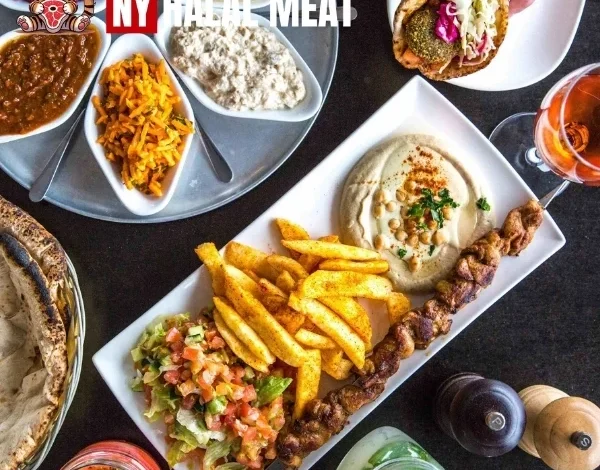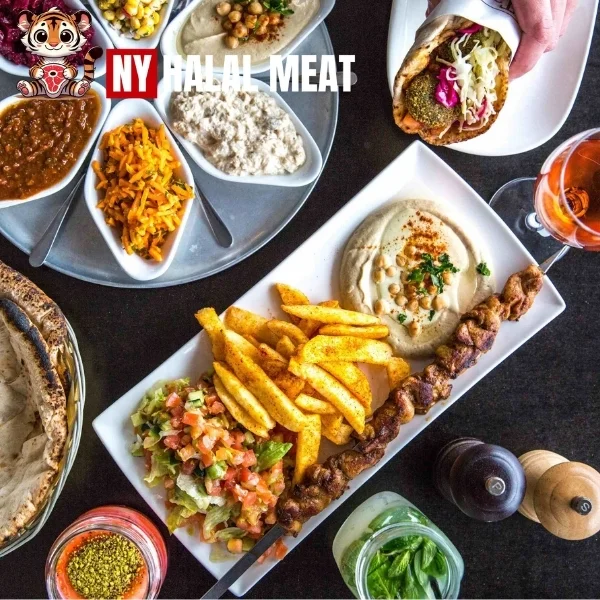
What Foods Are Halal to Eat in the USA?
In the United States, the availability of halal food has significantly increased, catering to the dietary needs of Muslim communities. Halal food refers to anything that is permissible to consume under Islamic law, based on guidelines found in the Quran and Hadith. For Muslims, eating halal food is not just a religious obligation; it’s also a way to ensure ethical, humane, and healthy food choices. But what exactly are halal foods, and how can you ensure what you’re eating is in compliance with halal standards in the USA? In this article, we’ll guide you through the foods that are halal, what to look for, and how to identify halal food options in the United States.
Understanding Halal Foods
“Halal” is an Arabic term that means “permissible” or “lawful.” To be considered halal, food must meet specific criteria based on Islamic dietary laws. In contrast, “haram” means “forbidden,” and it applies to foods and drinks that are not allowed. Key distinctions of halal food include:
- No Pork: Pork and pork products are strictly forbidden in Islam.
- No Alcohol: Alcoholic beverages and foods containing alcohol are considered haram.
- Proper Slaughtering Practices: Animals must be slaughtered humanely according to Islamic rites, including saying “Bismillah” (in the name of Allah) before slaughter.
- Cleanliness: Halal food should be free from contamination with any haram substances.
Understanding these basic principles helps ensure that the food you consume is in line with Islamic dietary practices.
Common Halal Foods in the USA
There is a wide range of halal foods available in the USA. From meat and poultry to vegetables and dairy products, here are some common halal food options.
1. Halal Meat and Poultry
Meat is one of the most significant components of a halal diet, but it must be sourced from animals slaughtered according to Islamic guidelines. Some of the most popular halal meat options include:
- Beef: Beef is halal if the animal is slaughtered properly, and it does not contain any non-halal ingredients or additives.
- Chicken: Halal chicken is commonly available in most markets. It is crucial to check for halal certification to ensure it has been slaughtered according to Islamic standards.
- Lamb and Goat: These meats are often halal, especially if they come from trusted halal sources. Many halal butcher shops specialize in lamb and goat, offering fresh cuts that are slaughtered humanely.
When purchasing halal meat, always look for halal certification to ensure it meets the proper requirements.
2. Seafood
Seafood is generally considered halal, including a variety of fish and shellfish. However, there are some guidelines to follow:
- Fish: Most fish are halal, including popular choices like salmon, tuna, and tilapia. Fish do not require the same specific slaughtering process as land animals, which makes them a convenient halal option.
- Shellfish: There is some debate among Islamic scholars regarding shellfish. However, many consider shrimp, lobster, and crabs to be halal. If you’re unsure, it’s best to consult with a trusted religious authority.
When consuming seafood, be sure that there are no non-halal additives or ingredients, such as alcohol-based sauces.
3. Vegetarian and Vegan Foods
Plant-based foods are generally halal since they do not involve animal products. Common halal vegetarian options include:
- Fresh vegetables
- Fruits
- Rice, pasta, and grains
- Legumes and beans
- Plant-based proteins such as tofu and tempeh
It’s essential to ensure that vegetarian or vegan products do not contain any hidden animal-based ingredients like gelatin or rennet, which may not be halal.
4. Dairy Products (when Halal Certified)
Dairy products such as milk, cheese, yogurt, and butter can be halal, provided they are free from non-halal ingredients like pork-based rennet used in cheese production. Always look for halal certification on dairy products to ensure they meet halal standards.
5. Beverages
Non-alcoholic beverages are usually halal, including:
- Water
- Fruit juices
- Soft drinks (check for any alcohol-based flavoring)
- Coffee and tea
However, alcoholic beverages, such as wine, beer, and spirits, are strictly forbidden in Islam and should be avoided.
Halal Certifications in the USA
To be sure that the food you are consuming is halal, look for halal certification. Many products in the USA are certified halal by recognized organizations, ensuring they meet the requirements of Islamic law. The most common halal certification organizations include:
- The Islamic Food and Nutrition Council of America (IFANCA)
- The Islamic Society of North America (ISNA)
- Halal Food Certification Authority (HFCA)
Products that are halal-certified will have a recognizable halal symbol or label on their packaging. Always check for this symbol when shopping for meat or packaged food items.
Tips for Finding Halal Food in the USA
Though halal food is more accessible than ever, it may still be challenging to find in some areas. Here are a few tips for sourcing halal food in the USA:
- Halal Butcher Shops and Grocery Stores: Many cities have halal butcher shops or grocery stores that offer a wide selection of halal products, including fresh meat, dairy, and snacks.
- Halal Restaurants: There are numerous halal restaurants, particularly in cities with large Muslim populations. Many of these restaurants offer a range of halal food, from Middle Eastern to South Asian cuisine.
- Online Shopping: If halal products are not available locally, many online retailers specialize in delivering halal-certified food. This is an easy and convenient way to access a wide variety of halal products.
- Check Product Labels: When shopping at mainstream grocery stores, always check product labels for halal certification. If a product is not labeled as halal, it’s best to avoid it.
Conclusion

Eating halal in the USA has become increasingly easier, with more halal-certified products available in stores, online, and at restaurants. By being mindful of food sources, certifications, and ingredients, you can enjoy a wide variety of halal foods that meet your dietary and religious needs. Whether it’s meat, seafood, dairy, or plant-based foods, there’s no shortage of halal options available for you to explore and enjoy.





